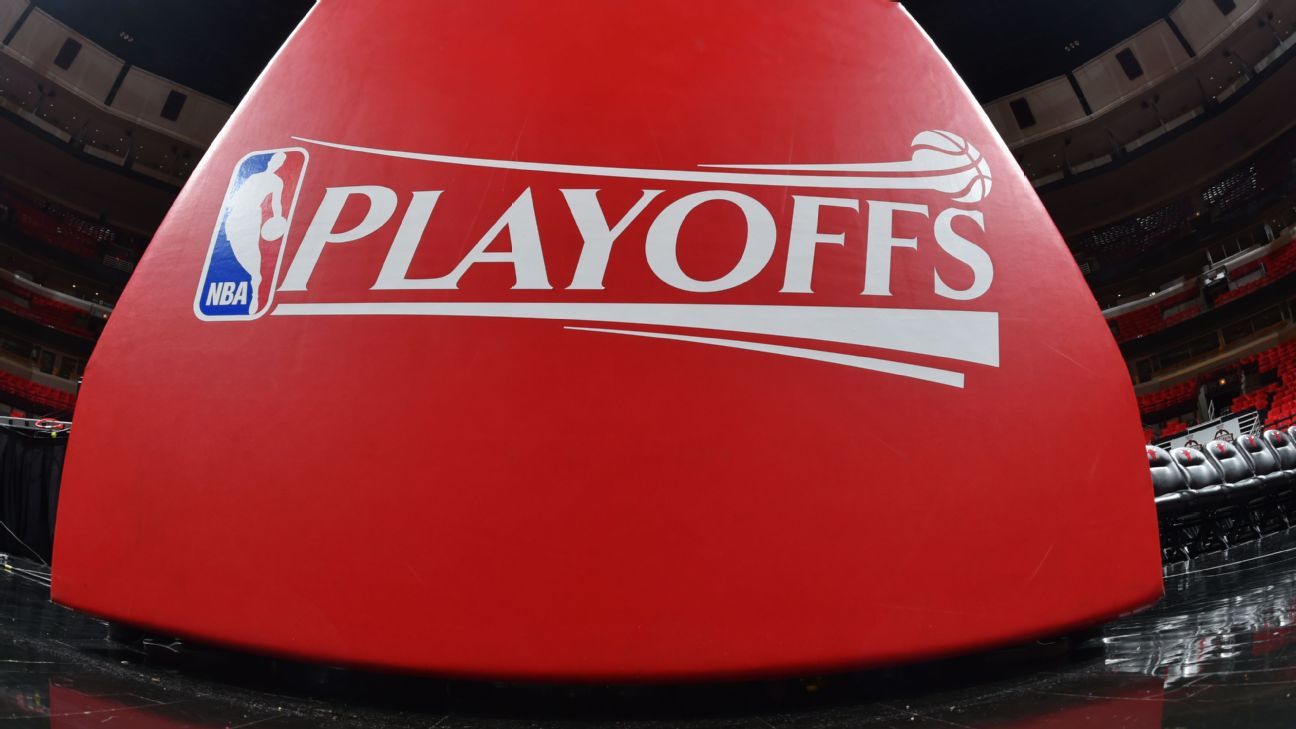Just days away from Thursday’s vote of the NBA board of governors to approve a plan to restart the season with 22 teams in Orlando, Florida, several of the franchises considered to be title favorites are internally discussing how to retain some semblance of the home-court advantage they fought to earn through 60-plus games in the regular season.
No plan has been formally proposed, and one would be unlikely to pass because it would require a two-thirds board of governors vote in addition to an agreement from the players’ union. Nevertheless, teams that would have traditionally had home court have tried to figure out incentives to reproduce the leg-up that hosting four games in a seven-game series would have offered, sources told ESPN.
If nothing else, the league has learned these past several months that innovation and creative thinking are its lifeblood to navigating a global pandemic that threatens to cancel the NBA playoffs and prevent a champion from being crowned for the first time in the league’s 74-year history.
And so in a Hail Mary, some teams are trying to invent a way to exchange the home-court advantage they lost for an alternative advantage in Orlando.
Executives from the teams that would host a first-round series in the playoffs told ESPN that they had internal discussions within their own front offices about reviving their home-court advantage in some fashion, and that some have already shared ideas with other teams in the same situation with the hopes of having an ally when making an appeal to the league.
Yes, some of the very teams that could soon be trying to eliminate one another in the postseason have been recently working together in a shared pursuit to regain the advantage they would have enjoyed at home.
Strange times make for strange bedfellows.
Some of the scenarios discussed, sources told ESPN, include:
-
The higher-seeded team being awarded the first possession of the second, third and fourth quarters, following the traditional jump ball to begin the game
-
The higher-seeded team being allowed to designate one player to be able to be whistled for seven fouls instead of six before fouling out
-
The higher-seeded team receiving an extra coach’s challenge
-
The higher-seeded teams being able to transport their actual hardwood home court from their home arenas to Orlando to try to preserve the feel of their home playing experience
-
An off-court feature in which playoff teams, in order of seeding 1-16, receive first choice on picking which hotel they will stay at in the ESPN Wide World of Sports Complex and Disney World Resort. ESPN is owned by the Walt Disney Co.
“I do think the NBA cares about it,” one Eastern Conference executive told ESPN when asked about making up for home-court advantage. “I do not think it’s a top priority for them.”
The NBA’s competition committee — made up of owners, general managers, players and coaches — held a meeting Tuesday and none of the potential home-court advantage alternatives were raised, sources told ESPN.
The competition committee acts as the league’s incubator to discuss the merits of incorporating competitive rule changes into the game. It’s a brain trust that serves as a buffer for the league, discussing new ideas before recommending them to the board of governors for a formal vote.
Among the questions posed by league executives to ESPN when discussing the replacement options included wondering how many of the proposed benefits would form a rough equivalent of the boost that home court brings. They also questioned whether the tweaks could come off as too gimmicky and compromise the legitimacy of the eventual champion in a postseason that’s already atypical.
One executive suggested to ESPN that the NBA should present the higher-seeded team a menu of league-approved options before each game — or possibly each series — and have them pick one. On the one hand, it could be an added wrinkle to the home viewing experience for fans to look for when they tune in. On the other, it could come off akin to a contestant on the game show “Who Wants to Be a Millionaire?” choosing between lifelines to help with a final answer.
Another “radical” idea pessimistically floated in background discussions, one Western Conference executive told ESPN, would be allowing the higher seed to pick its first-round opponent.
The executive did not believe the league would go for it.
An Eastern Conference front-office member, working for a team currently slotted for the playoffs, didn’t like the radical idea either.
“Picking your opponent can lead to bad karma,” he told ESPN, noting that previous G League experimentation led to upsets. “You can offend the basketball gods.”
Of course, as one league executive warned ESPN, the league could determine that any first-time rule change in a playoff setting would just cause more hurt to the integrity of the game than it would be worth.
“For each problem you’re trying to fix,” he said, “you’re potentially creating other problems.”
ESPN’s Malika Andrews and Tim Bontemps contributed to this report
